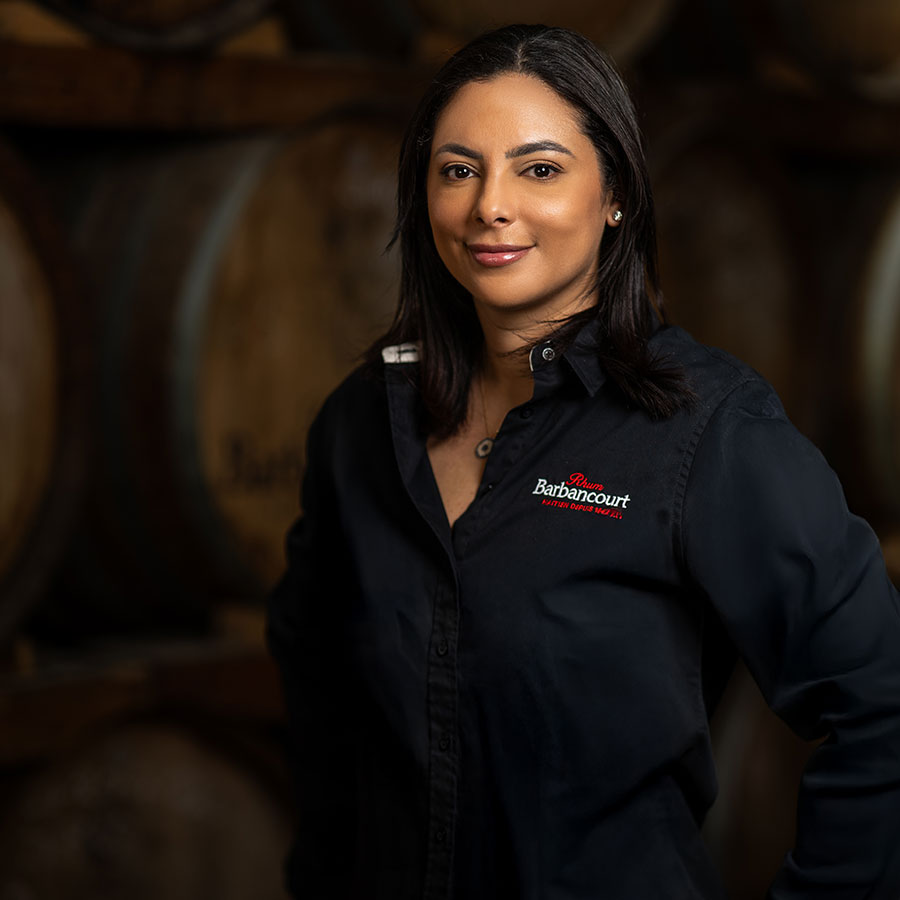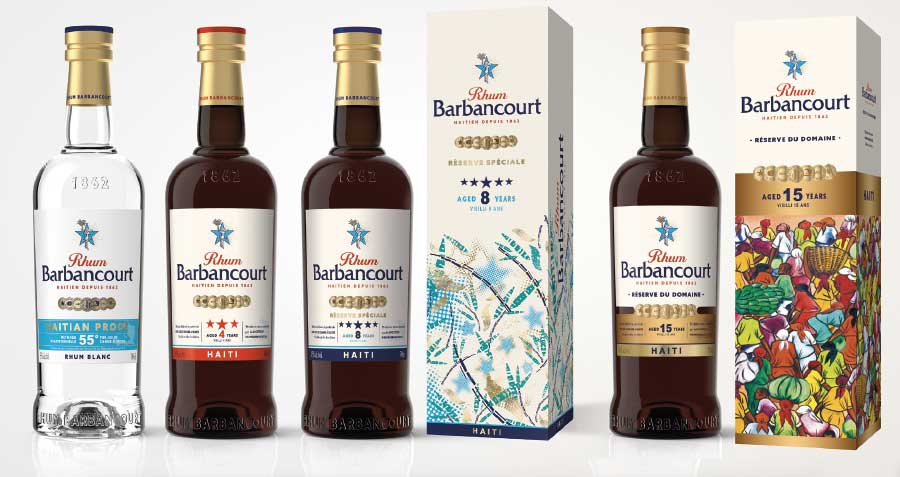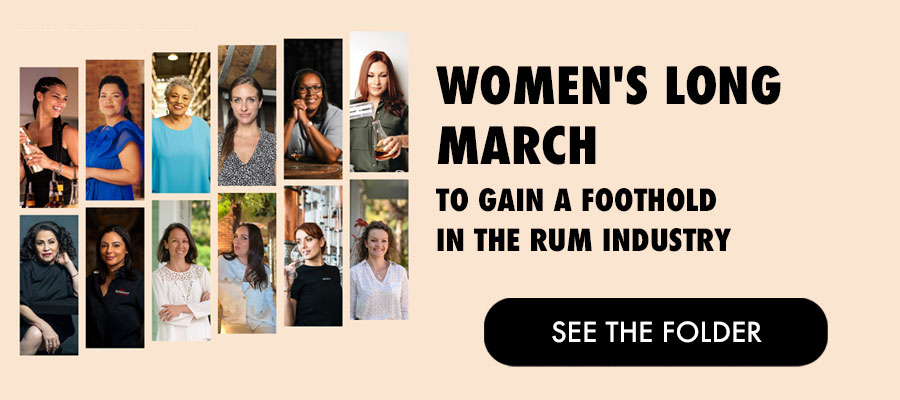Heir to a 160-year-old tradition, Delphine Gardère took over the reins at Barbancourt under painful circumstances following the death of her father. Since then, she has been fighting to promote Haitian rum around the world, with undeniable success!

When you started out eight years ago, were you easily accepted by your male colleagues?
Joining a family business at the age of 33, as a woman, in a historically male-dominated sector, was not easy. There were implicit expectations, preconceived ideas, and sometimes even comparisons. I had to prove myself, demonstrate my legitimacy and build my place, not just inherit it.
I quickly realised that leadership is not about authority or the volume of your voice, but about consistency, listening, reliability and setting an example. Trust is earned over time, and actions speak louder than words.
Were there many women in the rum industry?
Unfortunately, no. When I started out, I didn’t really have any female role models in the rum industry. It’s an environment where women were under-represented, especially in management positions.
But I was fortunate enough to have previously worked in the cosmetics industry, a sector where women play a more prominent role. Throughout my career, I have also met inspiring women, even from other industries. Their strength, their vision and their authentic leadership style have served as role models for me and helped me to assert myself.
How have things changed?
Positively. Today, I see more and more women in the rum industry, and within our company itself. At Barbancourt, we have increased the number of women from 22 in 2020 to 56 in 2025 across the entire company, an increase of more than 155%, which demonstrates a real commitment to diversity and inclusion.
Women hold a variety of positions, including roles of responsibility in production, logistics, marketing and accounting. This is an encouraging trend, as it shows that women’s skills and talents are finally receiving the recognition they deserve in countries and sectors that have long been perceived as exclusively male.
What could be done to encourage women to pursue careers in the rum industry?
First, women need to be made more visible in the sector: role models inspire and open up career paths. For a long time, rum-related professions have been perceived as male domains.
It is essential to highlight the women who are already working in the industry in order to create role models for future generations. Finally, we need to create an inclusive and diverse working environment where female talent can express itself freely, without having to ‘prove’ itself more than others.
This requires a corporate culture that values diversity of experience, perspectives and ways of doing things. Encouraging women to pursue careers in rum is not only a matter of fairness, it is also an asset for the industry itself.
Have you ever faced sexist behaviour and/or harassment in the workplace?
Yes, like many women in traditionally male-dominated sectors, I have faced sexist attitudes. It’s not always overt, but it often manifests itself in subtle ways: people interrupt you, explain things you already know, question your legitimacy.
When I took over as head of the company, some people saw me only as ‘the daughter of’, an heiress parachuted in rather than a competent leader. I felt this biased view very early on, especially since at the time I didn’t know any women in leadership positions in Haiti.
But I didn’t let these perceptions define me, and I met other women who helped me on my journey: who inspired, supported and helped me. They supported me in my decision to modernise, structure and promote Barbancourt. And over time, the results spoke for themselves. Today, I know that my voice carries weight, not because I bear a certain name, but because I have proven myself.
Is there a ‘feminine’ way of producing rum?
I firmly believe so. Women have a different sensibility, shaped by their experiences, their emotions and their way of understanding the world. Experiences such as motherhood, for example, profoundly transform the way we perceive, feel and create.
In my case, my career in the world of perfume, a sector where smell is at the heart of everything, has allowed me to develop my ‘nose’. Today, I find this sensitivity in tasting, in the balance of aromas…
Producing rum is not just a question of technique, it is also an act of creation, of intuition… I believe that women have a rightful place in this more sensory and emotional dimension of the profession, and that they bring a particular richness to it.
Why do you think fewer women than men enjoy rum tasting?
The world has changed, and women now hold positions of responsibility in many industries, including those where they were historically under-represented. I think it’s time to change the rules of rum by creating more inclusive, more open spaces where women feel fully entitled to explore, taste and even produce this spirit.
For a long time, rum has been associated with a certain idea of power and virility, often with stereotypical images such as that of ‘pirate rum’. Women were neither targeted by marketing campaigns nor promoted within the industry. This lack of representation has contributed to maintaining a distance.
How can you convince them to give rum a chance?
Today, it is up to us to break these codes, give more visibility to passionate women, and make rum tasting a universal experience, rich and open to all palates.


